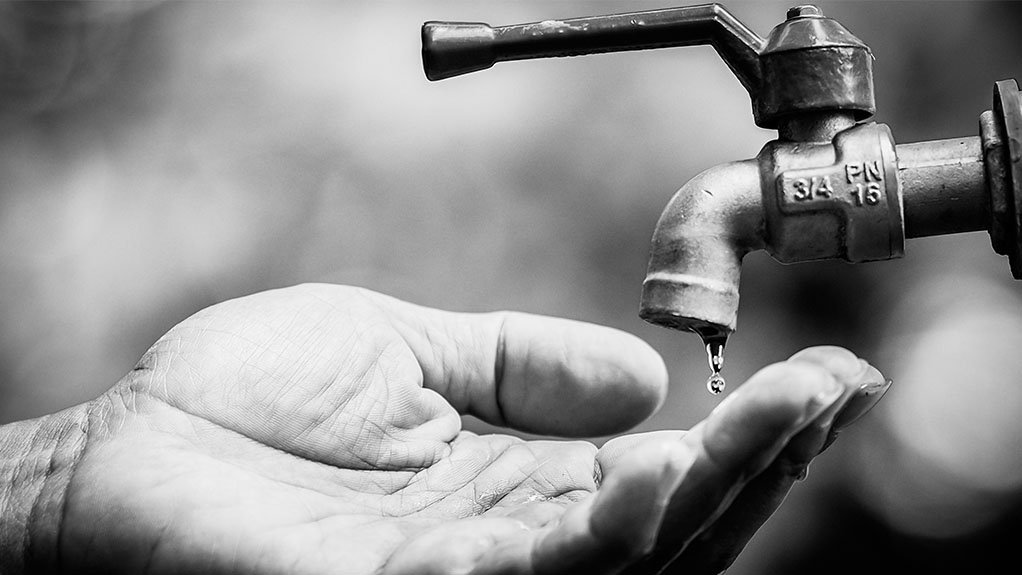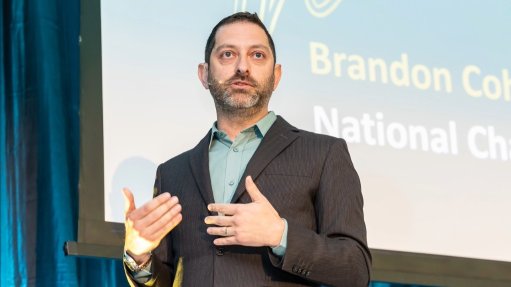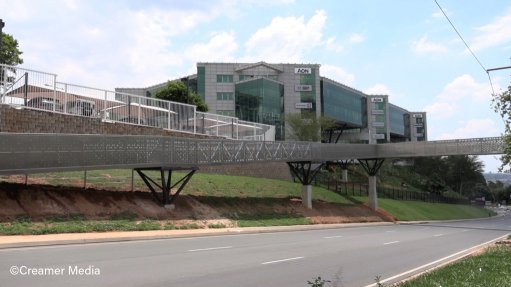Organisations raise concern over latest DWS water reports
Organisation Undoing Tax Abuse initiative WaterCAN and AfriForum are raising their concerns over the latest results from the Department of Water and Sanitation’s (DWS’s) full Blue and No Drop reports, as well as the Green Drop Progress report, which shows the deteriorating state of South Africa’s drinking and wastewater operations.
The parties on Wednesday said that the reports highlighted the dysfunction of municipalities in managing drinking water and wastewater processing.
The Blue and No Drop reports indicate that there has been a decline in drinking water quality and an increase in nonrevenue water since the last reports were issued in 2014. The Green Drop Progress report meanwhile indicates a deterioration in the performance of municipal wastewater treatment systems.
According to the Blue Drop report, of the 958 water supply systems (WSS) in each of the 144 water services authorities (WSAs) across South Africa, 277 are in a critical state, 184 are in the medium-risk category and 122 WSS’s are in the high-risk category.
At a national level, the drinking water quality of 46% of WSS’s does not comply with microbiological standards and 44% of WSS’s do not comply with chemical standards for safe human consumption.
The Green Drop Progress report, meanwhile, shows that 64% of wastewater treatment works (WWTWs) are at high or critical risk of discharging partially treated or untreated water into rivers and the environment.
The number of WWTWs in the high- and critical-risk categories have both increased since 2013, with 32% and 34% in the critical-risk and high-risk categories respectively in the 2023 update of the Green Drop Progress Assessment.
Only 9% of WWTWs were low-risk and 25% medium-risk, with none of the provinces having improved their WWTWs' risk ratings since the full Green Drop report was published in 2022.
According to the No Drop report, in which 144 WSA’s were audited, nonrevenue water increased from 35% in 2014, to 47%. This means that of the total 4.4-billion cubic metres a year treated for municipal use, an estimated 2.1-billion cubic metres a year is estimated to be nonrevenue water.
The No Drop report found that only four WSAs scored more than 90% and qualified for the No Drop certification, eight WSAs scored between 80% and 90% and 64 WSAs scored below 30%.
“This paints an extremely worrying picture especially because it is clear that municipalities are incompetent and do not have the ability to provide basic services such as clean drinking water,” said AfriForum environmental affairs manager Lambert de Klerk.
“How is this not a crisis? It is a complete crisis: 46% of drinking systems do not comply with microbiological standards, 67.6% of wastewater treatment works are failing and 47.4% of our water is lost or unaccounted for,” highlights WaterCan manager Dr Ferrial Adam, in response to Water and Sanitation Minister Senzo Mchunu’s apparent reluctance to call the water situation a crisis.
“If 46% of municipalities are not complying with drinking water standards, that means you should not drink the water from those systems without boiling it. Why have we not seen more notices warning consumers to boil water before drinking? Are they not letting people know that the water is contaminated? Surely that is a crime?”
AfriForum environmental affairs adviser Marais de Vaal, examining the contents of the report, questioned Cooperative Government and Traditional Affairs Minister Thembi Nkadimeng’s recent statement that there is a remarkable improvement in municipalities.
“The provision of clean drinking water, which is a basic human right, weakens year after year and the number of towns with water problems is also only increasing. How is this an indication that municipalities have improved remarkably?”
“What is even more worrying is that municipalities do not notify their residents when water quality is compromised and this can be life-threatening,” De Klerk added, referring to the Blue Drop report’s findings that 57% of municipalities do not notify water users in the event of water quality being compromised or not monitored, implying low confidence by water users in the quality of water in their taps.
“The mismanagement of wastewater causes a vicious cycle that can also affect the quality of drinking water. With almost two-thirds of WWTW’s posing a high or critical risk, it is not at all far-fetched that the treatment of drinking water will also become much more problematic in the future. Ultimately, this will have a huge impact on the cost of drinking water, because it will become more and more expensive to purify water. Given the critical condition of almost a third of the country’s WSSs, this can already lead to life-threatening situations,” De Vaal commented.
WaterCAN further questioned spending following the report’s estimates that R4.69-billion is required every year to maintain the water supply assets, which is 15% of their estimated value of R217.34-billion.
“The report says the actual spending of 27% on operations and maintenance appears to be more than adequate. If this money is indeed being spent, WaterCAN questions the effectiveness of the spending, given the ongoing reports from across the country of failed water systems which leave communities desperate for reliable water provision,” said Adam.
However, while the reports bring bad news, WaterCAN applauds the DWS for delivering these reports.
“Although the reports illustrate the state of the crisis, it is better to have clear, reliable information as an indication of where we stand and a baseline for improvement.
WaterCAN further welcomed the department’s promises in the reports to take action against municipalities to improve systems, calling on the DWS to keep the public up to date on such actions.
“There is substantial room for improvement. We want to see those in charge of the failed systems held to account, and clear and consistent corrective action applied,” Adam commented.
Article Enquiry
Email Article
Save Article
Feedback
To advertise email advertising@creamermedia.co.za or click here
Comments
Press Office
Announcements
What's On
Subscribe to improve your user experience...
Option 1 (equivalent of R125 a month):
Receive a weekly copy of Creamer Media's Engineering News & Mining Weekly magazine
(print copy for those in South Africa and e-magazine for those outside of South Africa)
Receive daily email newsletters
Access to full search results
Access archive of magazine back copies
Access to Projects in Progress
Access to ONE Research Report of your choice in PDF format
Option 2 (equivalent of R375 a month):
All benefits from Option 1
PLUS
Access to Creamer Media's Research Channel Africa for ALL Research Reports, in PDF format, on various industrial and mining sectors
including Electricity; Water; Energy Transition; Hydrogen; Roads, Rail and Ports; Coal; Gold; Platinum; Battery Metals; etc.
Already a subscriber?
Forgotten your password?
Receive weekly copy of Creamer Media's Engineering News & Mining Weekly magazine (print copy for those in South Africa and e-magazine for those outside of South Africa)
➕
Recieve daily email newsletters
➕
Access to full search results
➕
Access archive of magazine back copies
➕
Access to Projects in Progress
➕
Access to ONE Research Report of your choice in PDF format
RESEARCH CHANNEL AFRICA
R4500 (equivalent of R375 a month)
SUBSCRIBEAll benefits from Option 1
➕
Access to Creamer Media's Research Channel Africa for ALL Research Reports on various industrial and mining sectors, in PDF format, including on:
Electricity
➕
Water
➕
Energy Transition
➕
Hydrogen
➕
Roads, Rail and Ports
➕
Coal
➕
Gold
➕
Platinum
➕
Battery Metals
➕
etc.
Receive all benefits from Option 1 or Option 2 delivered to numerous people at your company
➕
Multiple User names and Passwords for simultaneous log-ins
➕
Intranet integration access to all in your organisation

















